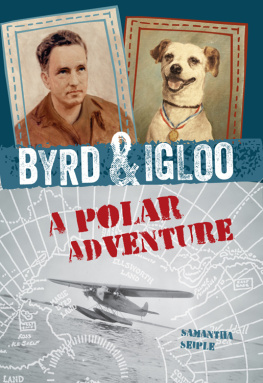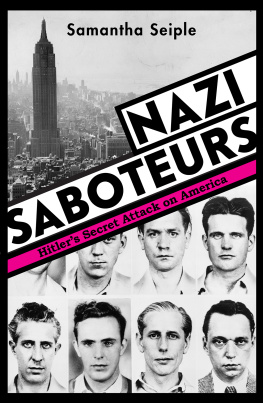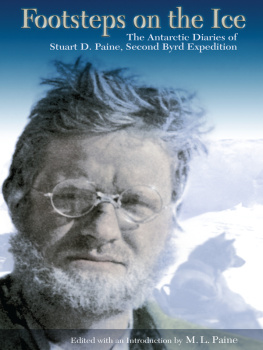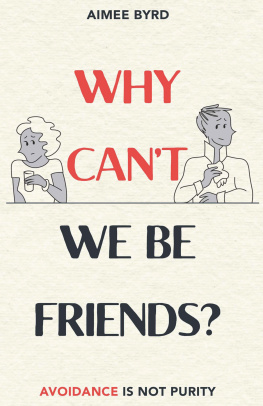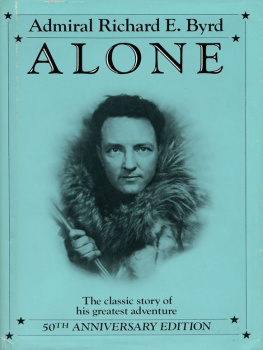All rights reserved. Published by Scholastic Press, an imprint of Scholastic Inc. Publishers since 1920 . S CHOLASTIC, S CHOLASTIC P RESS , and all associated logos are trademarks and/or registered trademarks of Scholastic Inc.
All rights reserved under International and Pan-American Copyright Conventions. No part of this publication may be reproduced, transmitted, downloaded, decompiled, reverse engineered, or stored in or introduced into any information storage and retrieval system, in any form or by any means, whether electronic or mechanical, now known or hereafter invented, without the express written permission of the publisher. For information regarding permission, write to Scholastic Inc., Attention: Permissions Department, 557 Broadway, New York, NY 10012.

JANUARY 1926: WASHINGTON, DC
It seemed like a typical winter day when Maris Boggs, a small woman wrapped in a big fur coat, walked briskly to the bus stop near the corner of Twelfth and F Streets in Washington, DC, just under a mile from the White House. But Maris was about to discover it was anything but.
Although it was a little after noon, the sun was hidden behind dark clouds, making it feel more like dusk. The fierce wind was unrelenting, saturated with a bitter icy rain. The bus held the promise of warmth and coziness, but it had not yet arrived.
Maris noticed a candy shop with a covered doorway, and she took shelter there, hoping to stay warm and dry from the razor-sharp wind and sleet. While she was waiting anxiously for the bus, she suddenly felt something brush up against her ankle. Startled, Maris peered down through her glasses and saw a shivering puppy with bedraggled white fur, brown ears, and two little brown patches on his back.
He looked up at her pleadingly with his brown-green eyes and tried to wag his tail, but he was too cold. Maris reached down and petted him. The puppy leaned in closer to her, snuggling into her soft fur coat and enjoying the warmth from the touch of her small hand.
Why, you poor thing! Maris said. You must be nearly dead.
Looking around, Maris wondered if the puppys owner might be in the candy shop. She opened the door, and the puppy dashed inside with Maris following closely behind him. They were immediately enveloped by the warmth of the shop, and by the sweet, heavenly scents of sugar, chocolate, vanilla, licorice, and mint.
She asked the storekeeper and customers if they knew who the puppy belonged to, but no one knew anything. Realizing the puppy was either lost or abandoned, Maris picked him up and held him in the crux of her arm. She had a dilemma.
Maris couldnt keep the puppy, but she also knew if she left him, he would die from the cold. The solution proved to be simple. She would just have to take the puppy with her to work and keep him until she found his owner or a new home.
Luckily, she was the boss, so no one in the office was likely to complain about the puppy this one time. Maris, who had recently celebrated her thirty-seventh birthday, was the cofounder and director of the Bureau of Commercial Economics, a nonprofit organization founded in 1913.
Mariss mission in life was to spread goodwill throughout the world. She was a globe-trotting world traveler who hobnobbed with political leaders and diplomats. Maris believed that if people learned about other cultures, they would have a better understanding of one another. As a result, Maris felt people would get along better and create world peace.
Her organization promoted goodwill by showing educational movies about different cultures and countries to millions of people all over the world, free of charge. This was an innovative idea, and in the beginning, some people were unsupportive. At the time, showing movies in movie theaters had only been around for about twenty years, and back then, going to the movies was looked down on as a lowly form of entertainment.
But Maris didnt listen to the naysayers. She spread goodwill with eight traveling motion picture theaters, which were specially equipped trucks that transported a movie projector, a phonograph, a generator, a movie screen, and an assortment of silent black-and-white films. These trucks traveled all over the United States and were loaded onto ships and sent to continents as far away as Asia, Africa, and South America. And if the trucks couldnt travel over roads to the more remote villages, she would have the equipment loaded on camels, llamas, or dogsleds whatever it took to get the job done.
Now Maris had another mission to find the puppy a good home. So when the bus finally arrived, Maris carried the puppy on board.
The rule for bringing a dog on the bus was strict, even for a quick ten-minute bus ride. The puppy was only allowed on the bus if he sat on Mariss lap. This kept big hulking dogs like Saint Bernards and Great Danes off the bus. Mariss puppy looked like a fox terrier, and he was so small he wouldnt bother anyone. Or so she thought.
The bus was crowded, and Maris found an empty seat by squeezing in between a plump man in an expensive suit who was busy reading a magazine, and a woman who was clutching a large shallow basket on her lap.
As the bus clamored down the busy street, dropping people off and letting others on, the puppy started to squirm. As tired and hungry as he was, the womans basket had sparked his curiosity. He needed to know what was inside.
The tiny puppy stretched his scraggy body out across Mariss lap and unabashedly stuck his wet nose into the basket. He discovered it was full of vegetables. Satisfied, he wagged his stubby tail enthusiastically, knocking into the plump mans magazine.
The woman holding the basket quickly placed a newspaper over the vegetables, not wanting dog germs contaminating them. The man folded up his magazine in a huff, his concentration broken.
Maris was embarrassed. But before she had a chance to explain his plight to her fellow passengers, the bus came to a halt. It was her stop. She held the puppy protectively in her arms, walked by the scowling bus driver, and exited the bus.
When she arrived at her office with the tired and hungry puppy, she asked her secretary what they should feed him. The secretary rushed to the store and bought some hamburger meat. But when they tried to feed it to him, the puppy didnt take a bite. He soon fell asleep under Mariss desk.
Maris worked diligently for the rest of the afternoon. When five oclock rolled around and it was time to go home, Maris was presented with another problem. No dogs were allowed in her apartment building. But Maris wasnt going to let this foil her plan.
When she arrived at the grand Beaux-Arts style building she called home in the neighborhood of Mount Pleasant, she avoided the front entrance. Stealthily, she went around to the back of the massive beige-colored brick building. Holding the puppy in one arm, Maris climbed up the fire escape. When she reached her apartments window on the top floor, she carefully climbed through it with the puppy.

